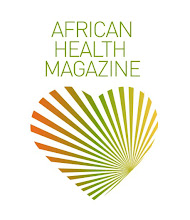
Poor nutrition increases a woman's risk of heart disease, cancer and diabetes. Healthy eating is the most important thing a woman can do to meet the minimum daily vitamin requirements essential for good health.Some women go on diet so there are often gaping holes in their nutrition while some others work very long hours and might not be able to eat 3 square(balanced) meals a day. whatever the case, supplements can help you get the required daily nutrients. Here are a list of essential vitamins every woman in the menstruating age needs.
• Calcium: A woman typically needs 1,000 to 1,500 milligrams of calcium daily, depending on her age. You can reach this daily requirement by eating or drinking dairy and soy products (preferably fat-free) or pure orange juice that’s been fortified with calcium, or by taking calcium supplements. As women age, their bone mass decreases. At this point, women need to be at the upper end of the daily calcium requirement to lower their risk of osteoporosis.
• Vitamin D:Sunlight triggers the development of vitamin D in your body, but as women get older they lose some of their ability to convert sunlight into vitamin D; without vitamin D your body can't use calcium. Also, protecting yourself from skin cancer with sunscreen means shutting out the vitamin D you'd get from the sun. To compensate for this loss, women should consider taking a multivitamin containing both vitamin D and calcium.
• Iron:If you’re still menstruating, you need to be sure you're getting an adequate amount of iron in order to prevent anaemia. You’ll find iron in meat, poultry, beans, eggs, and tofu. It’s important to pair your iron-rich meals with foods that contain vitamin C, like orange juice or citrus fruits, because vitamin C helps increase iron absorption.
• Folic acid: Women who are pregnant or trying to become pregnant need to get more folic acid. it has been shown that low levels of this B vitamin can lead to birth defects in the baby affecting the brain and spinal cord. In addition to supplements, folic acid can be found in orange juice, beans, and green vegetables, and in foods such as breads and flour that have been fortified with it.
• Beta-carotene: antioxidants — cancer-fighting substances like beta-carotene and vitamin C — help defend your body against cell damage. Food sources best for beta-carotene include carrots, apricots, papaya, cantaloupe, pumpkin, sweet potatoes, and mangoes.
• B6 and B12: Vitamin B6 helps with red-blood cell formation and vitamin B12 helps with nerve-cell and red-blood cell development. For example, you can get a day's supply of vitamin B12 by eating one chicken breast, one hard-boiled egg, a cup of plain low-fat yogurt or one cup of milk, plus one cup of raisin bran.
• Omega-3 fatty acids: These acids have been shown to act like natural anti-inflammatory substances in the body. They may also be important in helping to keep your heart healthy. As a woman gets older, her levels of estrogen decline, and that puts her at greater risk for heart disease. Fatty fish, like salmon and tuna, is a great source of omega-3 fats, and pure orange juice is often fortified with omega-3. alternatively you can take fish oil capsules.
In general experts believe taking multivitamins is a good idea. Clearly when it comes to calcium and vitamin D we all need additional supplementation. We can only eat so much dairy or fortified foods in a day. For the rest, a multivitamin may help to fill in the gaps when your diet cant.
Reference:blackhealth
photo credit: getty images



I agree. When women get woozy, they are always wondering what it is. Check. If you recently got off your period, you may be temporarily deficient in iron.
ReplyDeleteWell said suzanne :-)
ReplyDelete